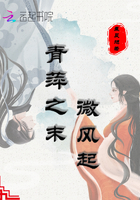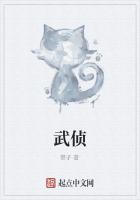"This way," she urged; and, guiding him into the house, she closed the window and drew down the shades.
I have no excuse to offer for my curiosity, but the interest excited in me by this totally irrelevant episode was so great that I did not leave the neighbourhood till I had learned something of this remarkable couple.
The story told me was very ******. Dr. Zabriskie had not been born blind, but had become so after a grievous illness which had stricken him down soon after he received his diploma. Instead of succumbing to an affliction which would have daunted most men, he expressed his intention of practising his profession, and soon became so successful in it that he found no difficulty in establishing himself in one of the best paying quarters of the city. Indeed, his intuition seemed to have developed in a remarkable degree after the loss of his sight, and he seldom, if ever, made a mistake in diagnosis. Considering this fact, and the personal attractions which gave him distinction, it was no wonder that he soon became a popular physician whose presence was a benefaction and whose word law.
He had been engaged to be married at the time of his illness, and when he learned what was likely to be its result, had offered to release the young lady from all obligation to him. But she would not be released, and they were married. This had taken place some five years previous to Mr. Hasbrouck's death, three of which had been spent by them in Lafayette Place.
So much for the beautiful woman next door.
There being absolutely no clue to the assailant of Mr. Hasbrouck, I naturally looked forward to the inquest for some evidence upon which to work. But there seemed to be no underlying facts to this tragedy. The most careful study into the habits and conduct of the deceased brought nothing to light save his general beneficence and rectitude, nor was there in his history or in that of his wife, any secret or hidden obligation calculated to provoke any such act of revenge as murder. Mrs. Hasbrouck's surmise that the intruder was simply a burglar, and that she had rather imagined than heard the words which pointed to the shooting as a deed of vengeance, soon gained general credence.
But though the police worked long and arduously in this new direction their efforts were without fruit and the case bids fair to remain an unsolvable mystery.
That was all. As Violet dropped the last page from her hand, she recalled a certain phrase in her employer's letter. "If at the end you come upon a perfectly blank wall--" Well, she had come upon this wall. Did he expect her to make an opening in it? Or had he already done so himself, and was merely testing her much vaunted discernment.
Piqued by the thought, she carefully reread the manuscript, and when she had again reached its uncompromising end, she gave herself up to a few minutes of concentrated thought, then, taking a sheet of paper from the rack before her, she wrote upon it a single sentence, and folding the sheet, put it in an envelope which she left unaddressed. This done, she went to bed and slept like the child she really was.
At an early hour the next morning she entered her employer's office. Acknowledging with a nod his somewhat ceremonious bow, she handed him the envelope in which she had enclosed that one mysterious sentence.
He took it with a smile, opened it offhand, glanced at what she had written, and flushed a vivid red.
"You are a--brick," he was going to say, but changed the last word to one more in keeping with her character and appearance.
"Look here. I expected this from you and so prepared myself."Taking out a similar piece of paper from his own pocket-book, he laid it down beside hers on the desk before him. It also held a single sentence and, barring a slight difference of expression, the one was the counterpart of the other. "The one loose stone,"he murmured.
"Seen and noted by both."
"Why not?" he asked. Then as she glanced expectantly his way, he earnestly added: "Together we may be able to do something. The reward offered by Mrs. Hasbrouck for the detection of the murderer was a very large one. She is a woman of means. I have never heard of its being withdrawn.""Then it never has been," was Violet's emphatic conclusion, her dimples enforcing the statement as only such dimples can. "But--what do you want of me in an affair of this kind? Something more than to help you locate the one possible clue to further enlightenment. You would not have mentioned the big reward just for that.""Perhaps not. There is a sequel to the story I sent you. I have written it out, with my own hand. Take it home and read it at your leisure. When you see into what an unhappy maze my own inquiries have led me, possibly you will be glad to assist me in clearing up a situation which is inflicting great suffering on one whom you will be the first to pity. If so, a line mentioning the fact will be much appreciated by me." And disregarding her startled look and the impetuous shaking of her head, he bowed her out with something more than his accustomed suavity but also with a seriousness which affected her in spite of herself and effectually held back the protest it was in her heart to make.
She was glad of this when she read his story; but later on--However, it is not for me to intrude Violet, or Violet's feelings into an affair which she is so anxious to forget. I shall therefore from this moment on, leave her as completely out of this tale of crime and retribution as is possible and keep a full record of her work. When she is necessary to the story, you will see her again. Meanwhile, read with her, this relation of her employer's unhappy attempt to pursue an investigation so openly dropped by the police. You will perceive, from its general style and the accentuation put upon the human side of this sombre story, a likeness to the former manuscript which may prove to you, as it certainly did to Violet, to whose consideration she was indebted for the readableness of the policeman's report, which in all probability had been a ****** statement of facts.














